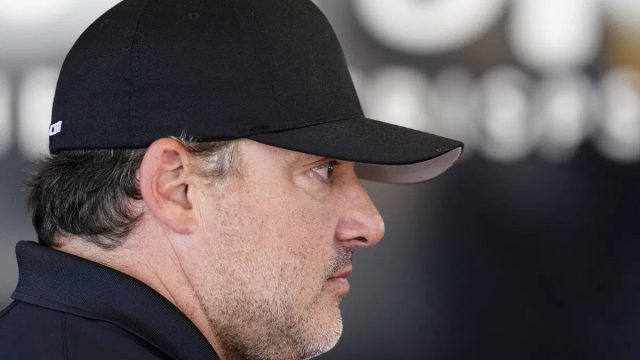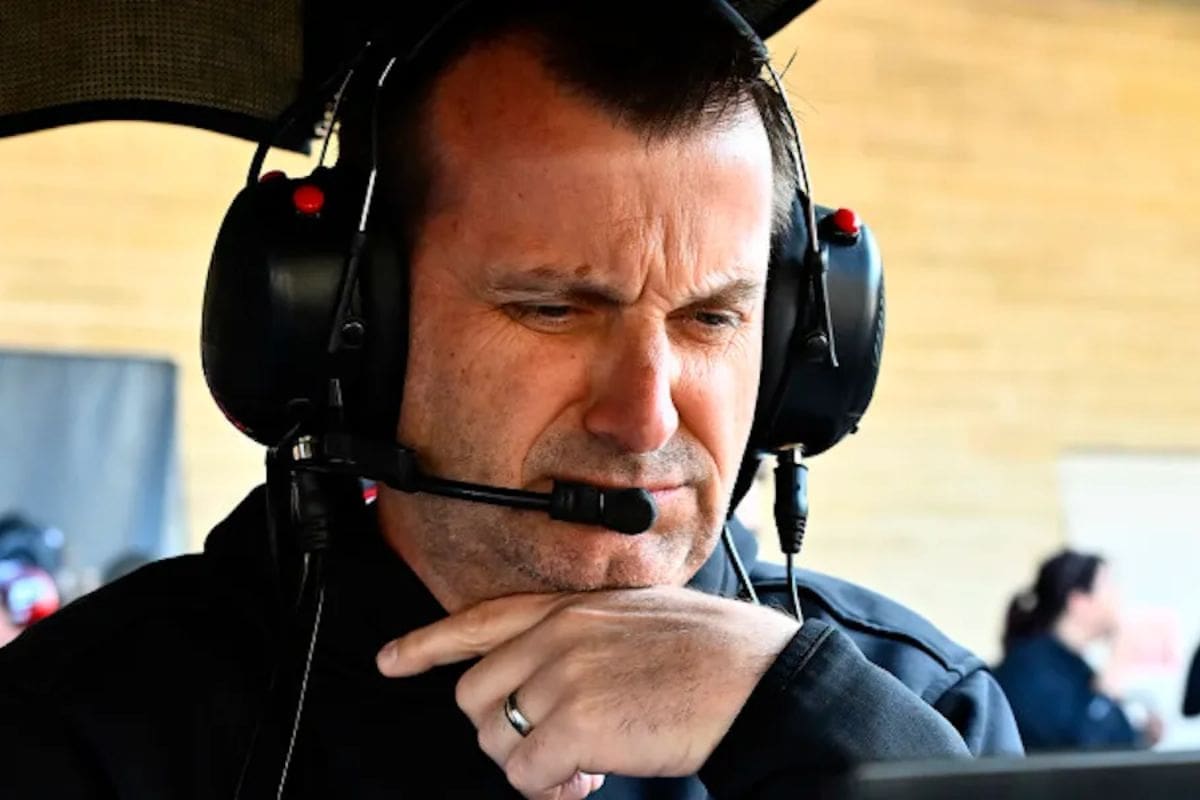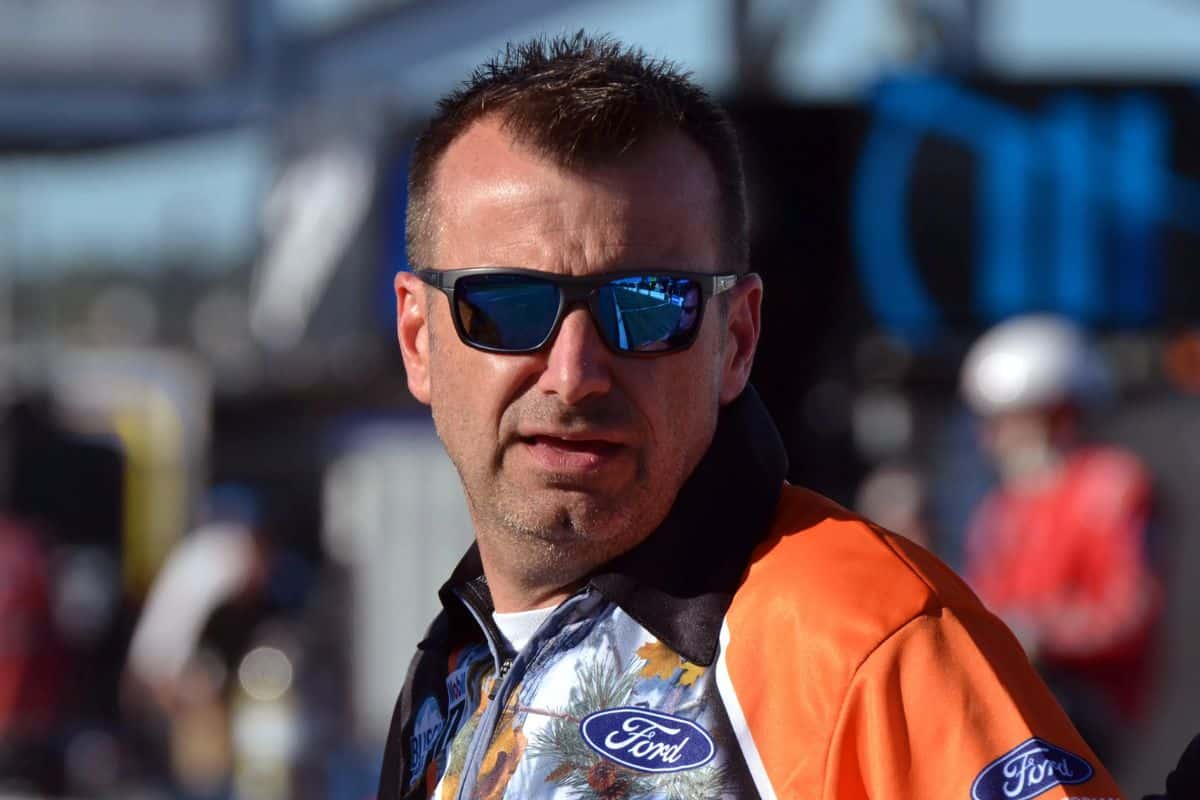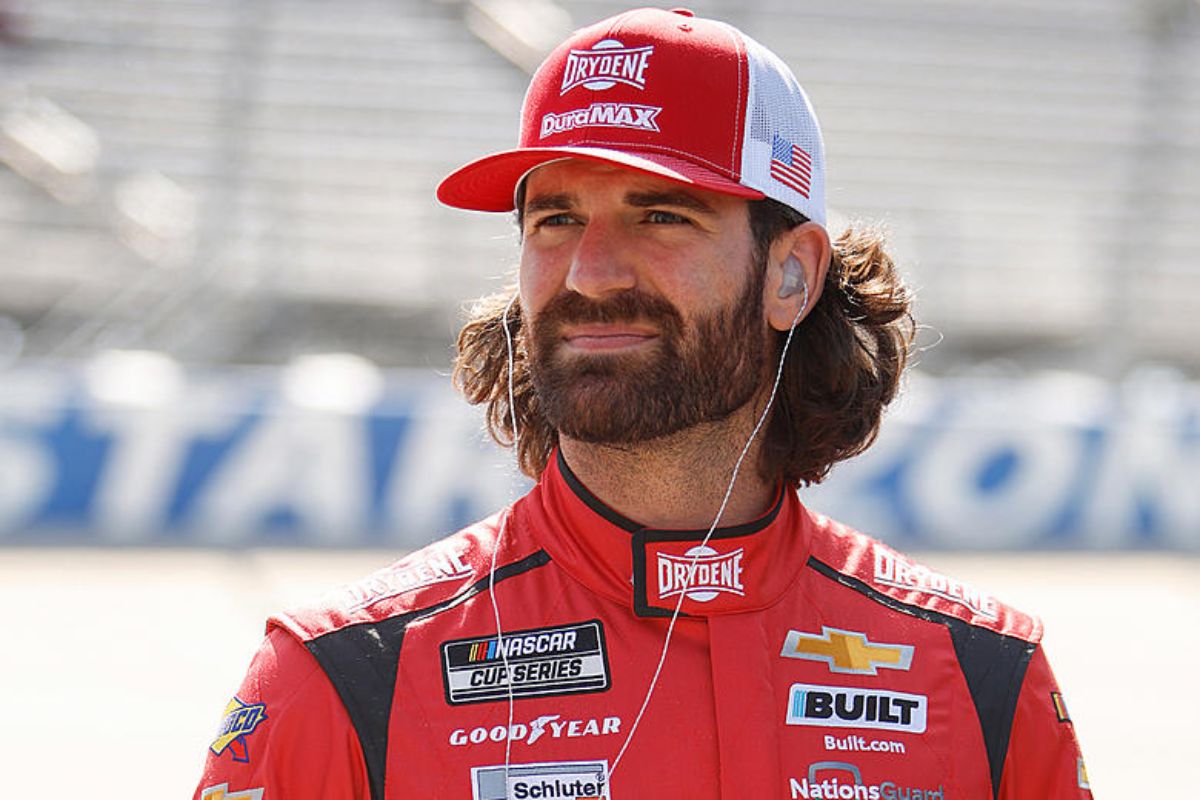Rodney Childers Desperate After SHR’s Exit: Tony Stewart‘s departure from NASCAR has not only reshaped the competitive landscape but has also placed considerable strain on Rodney Childers, who now finds himself in urgent need of attracting high-profile drivers to Spire Motorsports. With Stewart’s exit creating a leadership void, Childers must navigate the complexities of team dynamics while seeking to improve sponsorship opportunities. The implications of this shift extend beyond immediate performance, as the future success of the organization hinges on Childers’ ability to secure talent that can reinvigorate the team’s prospects and influence its tactical direction. What challenges lie ahead for Childers in this crucial moment?
Key Highlights
- Tony Stewart’s exit has created a leadership vacuum in the #7 operations, heightening the need for experienced drivers to fill critical roles.
- Rodney Childers faces pressure to attract big-name drivers, which is crucial for securing sponsorship and enhancing team competitiveness.
- With Corey LaJoie’s departure, Childers must quickly identify a capable replacement to maintain the team’s performance in upcoming seasons.
- The team’s success hinges on adapting strategies and fostering a strong culture, making top-tier talent essential for future growth.
Rodney Childers’ Move to Spire Motorsports
As Rodney Childers transitions to Spire Motorsports in 2025, his move signifies both a new chapter in his career and a critical crossroads for the team as they seek to redefine their competitive edge in the NASCAR Cup Series.
Childers, known for his tactical insight and success with Stewart-Haas Racing, steps into a role that demands innovation amidst the backdrop of uncertainty following Tony Stewart’s departure. This change arrives at a crucial moment for Spire Motorsports, a team working to improve its performance and visibility within the series.
Childers brings with him a wealth of experience and a track record of winning; however, the challenge lies in aligning his expertise with a new driver and team dynamics. The potential for success hinges not only on Childers’ leadership but also on the collective commitment of the organization to establish a competitive framework.
Moreover, Childers’ recent reflections on his tenure at Stewart-Haas highlight the emotional and professional stakes involved in this shift. The scramble for opportunities with high-profile teams emphasizes the precarious nature of his career, illustrating the importance of stability and trust in a new environment.
His gratitude towards Spire Motorsports’ leadership suggests a mutual recognition of the need for a long-term vision that transcends immediate results. As the team launches into this expedition, the synergy between Childers and Spire Motorsports will be critical in steering through the complexities of the NASCAR landscape.
Rodney Childers’ Background and Challenges
Rodney Childers’ extensive background in racing, marked by early successes in karting and later victories as a championship-winning crew chief, highlights the depth of experience he brings to Spire Motorsports amid a challenging alteration period. His expedition began at the age of 12, where he quickly established a reputation by winning national karting championships. These formative years laid the groundwork for his future success in the NASCAR ranks.
As the crew chief for Kevin Harvick’s #4 team, Childers achieved remarkable milestones, including clinching the prestigious Bill France Cup in 2014. However, the recent foreclosure of Stewart-Haas Racing has cast a shadow on those achievements, forcing Childers to traverse a tumultuous landscape. The change has been compounded by the retirement of Harvick, which left an emotional void and heightened the stakes for both Childers and his new driver, rookie Josh Berry.
“I think it caught a lot of people off guard that you wound up there (Spire). I don’t know that anybody said he’s going to wind up there. I think a lot of people just assumed that you would just go wherever Josh Berry went.”
“Give us some background on. How all that came about and you wound up as crew chief of the #7 car?” – Harvick
Despite a challenging season, where Berry has secured only two podium finishes and a handful of top-10s, Childers remains resolute in fostering a culture of resilience and performance. His commitment to ensuring Berry’s development reflects his understanding of the intricacies involved in adapting a driver into a competitive environment.
The challenges ahead are considerable, as Childers must not only adjust to a new team dynamic but also rejuvenate his own career pathway. As he faces these obstacles, his extensive experience will be vital in traversing the complexities of the current NASCAR landscape.
Rodney Childers’ Transition and Future with Spire Motorsports
Changing to Spire Motorsports marks a vital moment in Childers’ career, presenting both challenges and opportunities as he undertakes to build a competitive team environment. Given his extensive background in winning races, Childers’ shift to a less established team will require tactical vision and resilience. His conversations with numerous teams following his departure from Stewart-Haas demonstrate the complexities of steering through the current NASCAR landscape. Ultimately, Spire Motorsports offered him a unique proposition: the chance to greatly influence the team’s development.
Childers’ decision to join Spire reflects a proactive approach to securing his future in NASCAR. He recognizes the importance of not waiting for opportunities to unfold, instead opting to seize this moment to apply his expertise. The commitment from Spire to build a competitive team resonates with Childers’ desire to not only contribute but also to leave a lasting mark in the sport. As he undertakes this new chapter, the intersection of Childers’ experience and Spire’s aspirations could indeed lead to a major turnaround for the team.
Rodney Childers’ Excitement for Spire Motorsports and Truck Series
Excitement is palpable among Childers and his team as they welcome the new challenges presented by their involvement in the NASCAR Craftsman Truck Series at Spire Motorsports. Shifting from the high-stakes environments of Hendrick Motorsports and Joe Gibbs Racing, Childers finds himself on the precipice of a fresh opportunity. This alteration not only energizes his team but also opens avenues for creative strategies and development in a series where they possess minimal prior experience.
Childers’ enthusiasm reflects a collective sentiment within the #4 team, which has been galvanized by the prospect of working on trucks. His remarks highlight a familial approach to teamwork, emphasizing that discussions around this shift have fostered a deeper commitment among team members. The readiness to engage in truck operations demonstrates their willingness to adapt and grow, an essential mindset in the dynamic landscape of NASCAR.
“You know, right after Stewart-Haas made their announcement, I felt so fortunate those next seven days. I talked to everybody in the garage. Like every team reached out. And I just felt so blessed and fortunate that these people reaching out.”
“I’m like: I have a chance to go there, I have a chance to go there. And I talked to all of them, and you know I think after you do the things that you and I did together and win 37 races together… Your goal is to to maybe end up at Hendrick one day or to end up at Gibbs one day or end up at Trackouse or one of these big teams. And it seemed like it after that first week it just wasn’t going anywhere.” – Childers
Moreover, this venture into the Truck Series enables Childers and his crew to expand their skill sets while capitalizing on Spire Motorsports’ unique position in the sport. The potential for inventive solutions and fresh perspectives could yield notable advantages on the track.
“I had conversations with different people and it just wasn’t going there… And everybody would kind of say, ‘Well, we might have something in three or four months or we might not’… “ – Childers
Corey LaJoie’s Departure and Impact on Spire Motorsports
Corey LaJoie’s decision to depart from Spire Motorsports after the 2025 season marks a notable inflection point for the organization, prompting a reevaluation of team dynamics and competitive strategy moving forward. LaJoie’s tenure, characterized by two top-10 finishes and a commendable fourth-place finish at the Daytona 500, has been a mixed bag, but it has nonetheless provided the team with a level of stability and insight into competitive performance.
“…unfortunately the future won’t involve me.” – LaJoie
As LaJoie shifts away from the #7 car, Spire Motorsports faces the challenge of filling a critical seat within its lineup. The impending change in leadership, with Ryan Sparks moving to the role of competition director, highlights a broader organizational realignment. The potential influx of drivers, such as Justin Haley or Zane Smith from Trackhouse Racing, indicates a willingness to investigate opportunistic partnerships, yet also raises questions about continuity and performance.
Rodney Childers, now at the helm of this evolving landscape, must utilize his extensive experience to not only attract a capable driver but also to foster an environment conducive to sustained success. The departure of LaJoie, while challenging, may ultimately serve as a catalyst for innovation within the team. A fresh driver could energize the #7 operations and inspire new strategies tailored to the evolving dynamics of NASCAR competition.
News in Brief: Rodney Childers Desperate After SHR’s Exit
The departure of Tony Stewart from NASCAR has prompted a critical reassessment within Spire Motorsports, particularly under the leadership of Rodney Childers.
The urgency to secure prominent drivers is paramount, as their presence is essential for attracting sponsorships and fostering competitive performance.
As the landscape of the team evolves, the focus remains on tactical recruitment and enhancing comprehensive team dynamics.
The future success of Spire Motorsports hinges on effectively steering through these challenges in a rapidly changing environment.
ALSO READ: Tony Stewart Upsets 300 Employees After NASCAR Fallout, Says Rodney Childers



